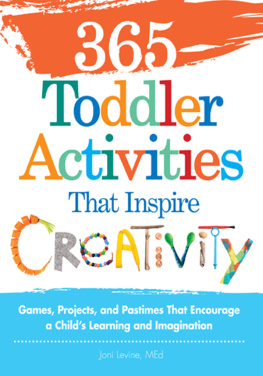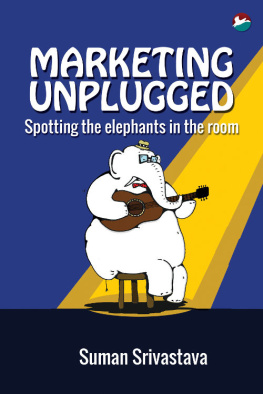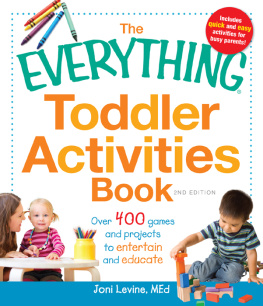Bobbi Conner - Unplugged Play: Toddler: 156 Activities & Games for Ages 1-2 (Unplugged Play)
Here you can read online Bobbi Conner - Unplugged Play: Toddler: 156 Activities & Games for Ages 1-2 (Unplugged Play) full text of the book (entire story) in english for free. Download pdf and epub, get meaning, cover and reviews about this ebook. year: 2020, publisher: Workman Publishing Company, genre: Children. Description of the work, (preface) as well as reviews are available. Best literature library LitArk.com created for fans of good reading and offers a wide selection of genres:
Romance novel
Science fiction
Adventure
Detective
Science
History
Home and family
Prose
Art
Politics
Computer
Non-fiction
Religion
Business
Children
Humor
Choose a favorite category and find really read worthwhile books. Enjoy immersion in the world of imagination, feel the emotions of the characters or learn something new for yourself, make an fascinating discovery.

- Book:Unplugged Play: Toddler: 156 Activities & Games for Ages 1-2 (Unplugged Play)
- Author:
- Publisher:Workman Publishing Company
- Genre:
- Year:2020
- Rating:4 / 5
- Favourites:Add to favourites
- Your mark:
- 80
- 1
- 2
- 3
- 4
- 5
Unplugged Play: Toddler: 156 Activities & Games for Ages 1-2 (Unplugged Play): summary, description and annotation
We offer to read an annotation, description, summary or preface (depends on what the author of the book "Unplugged Play: Toddler: 156 Activities & Games for Ages 1-2 (Unplugged Play)" wrote himself). If you haven't found the necessary information about the book — write in the comments, we will try to find it.
Unplugged Play: Toddler: 156 Activities & Games for Ages 1-2 (Unplugged Play) — read online for free the complete book (whole text) full work
Below is the text of the book, divided by pages. System saving the place of the last page read, allows you to conveniently read the book "Unplugged Play: Toddler: 156 Activities & Games for Ages 1-2 (Unplugged Play)" online for free, without having to search again every time where you left off. Put a bookmark, and you can go to the page where you finished reading at any time.
Font size:
Interval:
Bookmark:
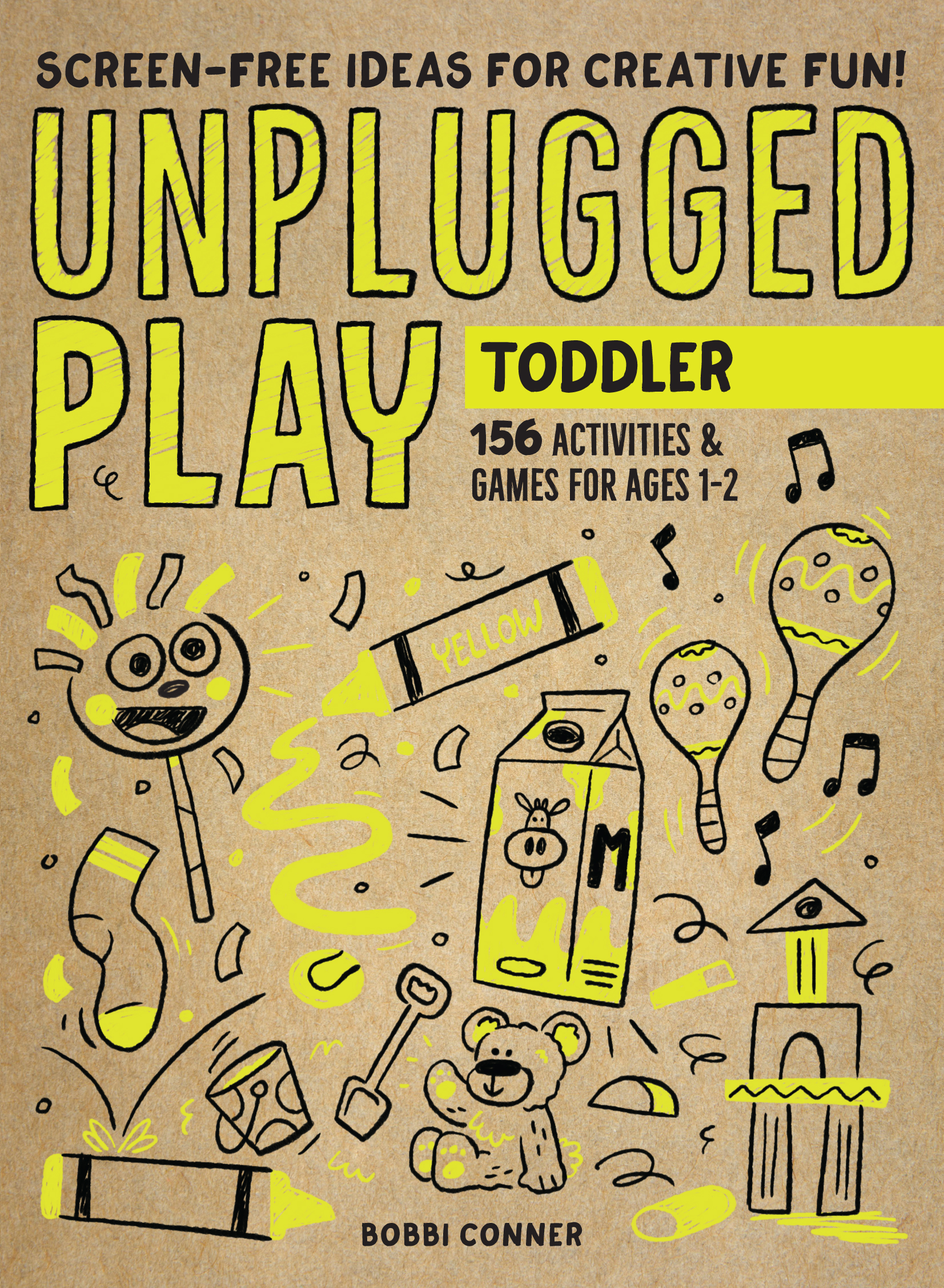

Activities & Games for Ages 12
Bobbi Conner
workman publishing * new york
For Cassidy, Olivia, and Peter

Contents

Preface
Play Matters
Whyand HowI Wrote This Book
C hildren like to play. And why wouldnt they? Its fun! So it makes sense that the more they play, the more they will want to play again. Its a lovely, self-perpetuating cycle that most parents intuitively understand. But what is harder to grasp is the power of play to shape a childs world, particularly a world that is high-tech, fast paced, and plugged in.
And thats why I wrote this book. During my twenty years as host of the nationally syndicated Parents Journal public radio show, Ive chatted with many of the leaders in the world of child development. Whether it was David Elkind or Penelope Leach, Fred Rogers or Benjamin Spock, they allevery one of themspoke of the significance of play. And now I want to help parents help their children enjoy the wholesome, old-fashioned experience of playing creatively and freely... without technology. I started by collecting and inventing hundreds of games, and then I tested them one by one on different groups of children, ages twelve months to ten years. When the kids rejected a game or an activity, I rejected it too. When a game inspired them to come up with a variation of their own, I appropriated their invention. The result is the more than one hundred unplugged games that you have here.
But why unplugged, you may ask. Since most of us embrace technology to some extent every daycan you imagine a world without email?it may seem far-fetched to suggest that parents minimize the amount of time their child spends connected to anything with a screen, a plug, or a battery. Besides, its so easy to plunk a kid in front of a screen! But children need to interact with living, breathing human playmates, and not be held captive by the lights, sounds, and images on a screen. They need to run, chase, ride, skip, and jump, and not sit still for prolonged blocks of time. We need only look at the huge rise in childhood obesity to understand how children suffer physically when they remain inactive.
But the toll on kids who rely primarily on electronics for their entertainment goes way beyond some extra pounds. When a child sits in front of a screen, he has no opportunity to connect with the natural worldmud, water, sand, stones, leaves, seeds, animals, insects, sunshine, and rain. It might not seem like such a huge loss in the moment when your child is contentedly clicking buttons on the keypad, but there is something essential about a child getting his hands messy. In addition, because electronic games are preprogrammed with finite possible responses, they limit the imagination. A child who draws, paints, builds, and invents knows a creativity that has no boundaries. By learning that she has the ability to shape her worldeither alone or in the company of othersshe gains the self-confidence she needs to grow into a problem-solving, creative adult.
And who could ask for more?
Bobbi Conner
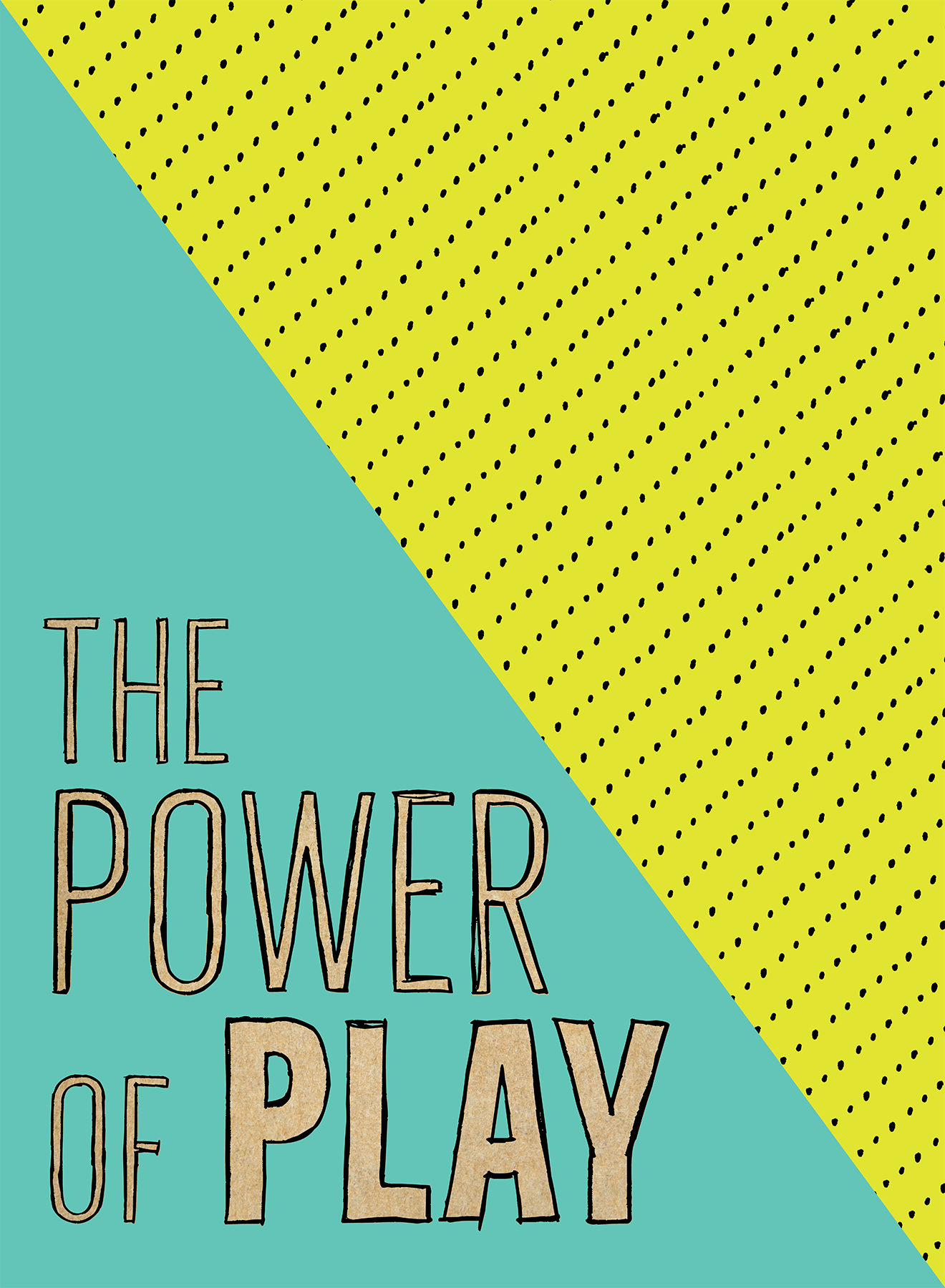
Y ou may feel as though life has changed in an essential way, and that there is no time for the kind of old-fashioned, wholesome, playful childhood that you had envisioned for your child. But there are the same twenty-four hours in each day and the same seven days in each week. Whats changed is the pace of life.
To a large extent, you, as the parent, are the keeper of the time in your family. You arrange the family schedule; you set dinnertime, bath time, and bedtime; and you get your child to appointments, childcare, playgroups, and school on time. As the keeper of the time, you have the power and authority to slow time down. And if you make that choice, youll probably find that your child has more time for all sorts of unplugged play.
Let me give you an example from my own life as a mom. When my son was in kindergarten and my daughter was three, I worked full time. I was a single parent earning a living for our family of three by day and doing all the typical parenting tasks by night. I always felt rushed. I picked my children up from their Montessori school each day at 5:00 p.m. and headed home. The moment I walked in the door I jumped right into making dinner. (And in the back of my mind I was thinking about the time needed for baths, bedtime stories, and laundry too.) So I scurried around the kitchen while the children played on their own. Or at least thats what they were supposed to do. Often, after just a minute or two, a sibling squabble would set off a group meltdown.
This went on for several days in a row that first week of school, and I realized something needed to change. The next day I put a happier plan in place. I walked in the house and said to my children, Lets get a snack and read a story together! (I meant now, not later tonight.) We grabbed three apples from the fruit bowl and a small plate of sliced cheese. We went into the living room, snuggled up on the couch, and ate our snack while I began to read Caps for Sale. It was a nourishing, calming time, and after fifteen minutes my son said, I want to play with my LEGOs now. My daughter said, Me too. Off they went. I started dinner knowing everyone was happy and reconnected. We all had the time and attention we needed to make a graceful transition into our evening together as a family. Our new after-work and after-school routine made an immediate, positive difference in our lives over the years. I often recalled how I had slowed down time and applied this same smart thinking whenever our routine or mood felt off-kilter.
I mention this lesson from my own life for three reasons. One, to assure you that simple solutions are often best for fixing family routines that are out of sync. Two, to encourage you to stop, take a breath, and make whatever changes are necessary to diminish that anxious feeling that comes when time closes in on you. And finally, to remind you that children need time to play. It was true when you were a child, and it is just as true for children today.
Play is not trivial. When children play, theyre doing important work.
Fred Rogers
Emmy Awardwinning creator and host of Mister Rogers Neighborhood
Dare to Unplug
Play is fun, which is the primary reason children want to do it. And the more fun children have while they play, the more they want to play again next time. This basic cause-and-effect law keeps children in perpetual motion, in search of more and more fun and more and more play. But the full story about play doesnt end here. Play is also a powerful way for children to experience the world.
Children learn through their everyday play experiences. In fact, play is perhaps the best way for children to learn about themselves (and their own capabilities), to learn about one another, and to learn how all things work in the world. Whats absolutely brilliant about this evolutionary mechanism is that children dont know and dont particularly care about the learning component to their play. For example, when two little toddlers play side by side, each loading miniature blocks into their own dump truck, they dont see small hints of cooperation, sharing, or a budding friendship unfolding. They are just doing what toddlers love to do. Physical, intellectual, social, and emotional growth are happening as children go about the everyday business of play.
Font size:
Interval:
Bookmark:
Similar books «Unplugged Play: Toddler: 156 Activities & Games for Ages 1-2 (Unplugged Play)»
Look at similar books to Unplugged Play: Toddler: 156 Activities & Games for Ages 1-2 (Unplugged Play). We have selected literature similar in name and meaning in the hope of providing readers with more options to find new, interesting, not yet read works.
Discussion, reviews of the book Unplugged Play: Toddler: 156 Activities & Games for Ages 1-2 (Unplugged Play) and just readers' own opinions. Leave your comments, write what you think about the work, its meaning or the main characters. Specify what exactly you liked and what you didn't like, and why you think so.



